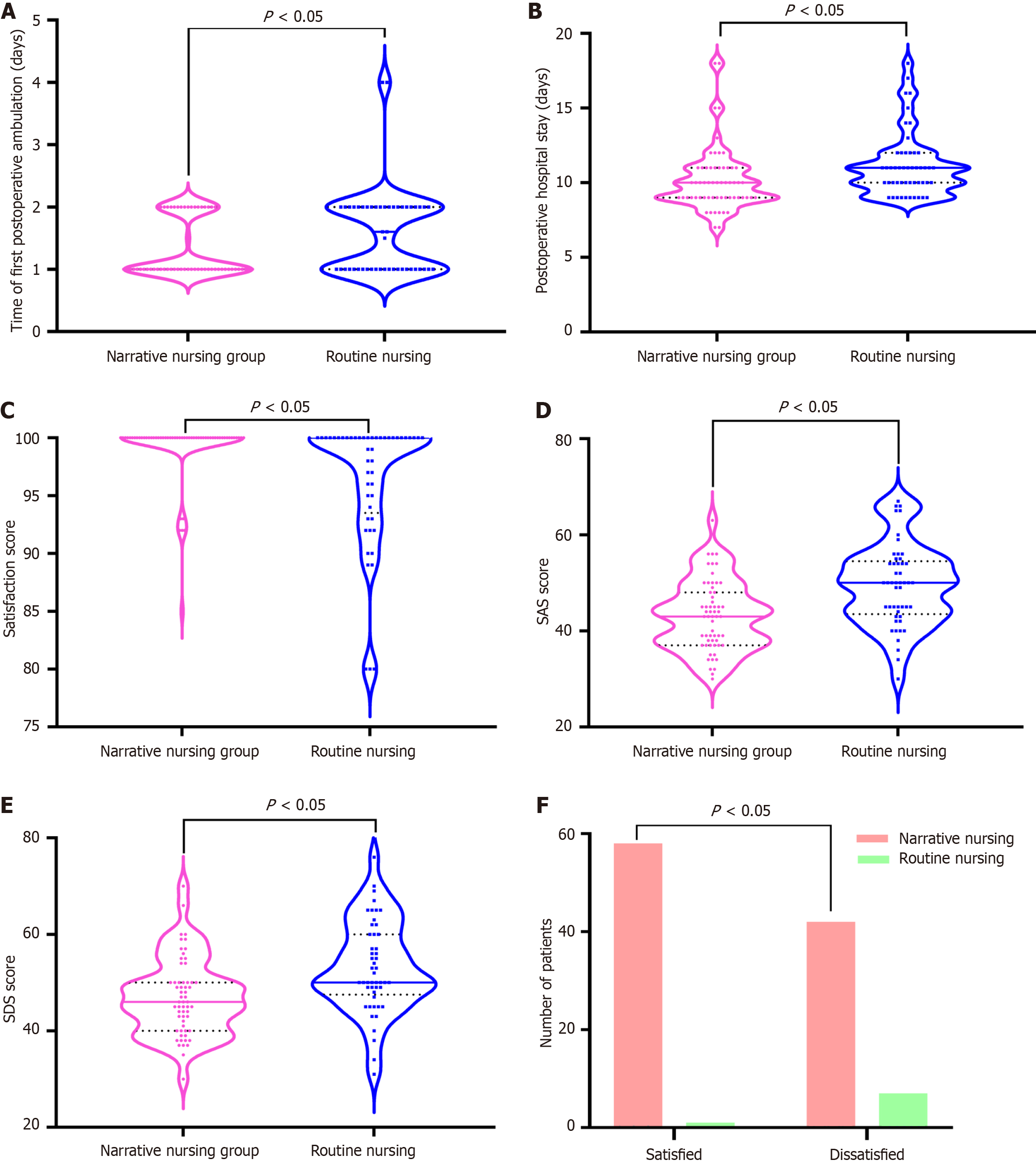©The Author(s) 2025.
World J Gastrointest Surg. Sep 27, 2025; 17(9): 106514
Published online Sep 27, 2025. doi: 10.4240/wjgs.v17.i9.106514
Published online Sep 27, 2025. doi: 10.4240/wjgs.v17.i9.106514
Figure 1 Comparison between the two groups.
A: The time to first ambulation. The narrative nursing group showed significantly earlier time to first ambulation compared to the routine nursing group; B: Postoperative hospital stay. The narrative nursing group had a significantly shorter postoperative hospital stay compared to the routine nursing group; C: Satisfaction scores on the day of discharge. The narrative nursing group had significantly higher satisfaction scores compared to the routine nursing group; D: Self-rating anxiety scale scores on the day of discharge. The narrative nursing group had significantly lower self-rating anxiety scale scores compared to the routine nursing group; E: Self-rating depression scale scores on the day of discharge. The narrative nursing group had significantly lower self-rating depression scale scores compared to the routine nursing group; F: Satisfaction. The narrative nursing group exhibited a higher proportion of satisfaction and a lower proportion of dissatisfaction. SAS: Self-rating anxiety scale; SDS: Self-rating depression scale.
- Citation: Shi LN, Wang L, Gao YB, Ma DH, Mao YL, Wang YQ, Wang Y, Guo QX, He RM, Chen JM. Clinical application value of narrative nursing model in patients undergoing laparoscopic radical gastrectomy for gastric cancer. World J Gastrointest Surg 2025; 17(9): 106514
- URL: https://www.wjgnet.com/1948-9366/full/v17/i9/106514.htm
- DOI: https://dx.doi.org/10.4240/wjgs.v17.i9.106514













